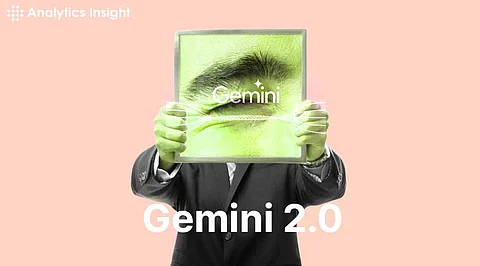

Companies are rapidly developing powerful AI models, leading to rapid advancement in the tech world. After a brief hiatus, Google has now launched the upgraded AI model called Gemini 2.0. The latest version tries to make the process efficient, and accurate, and enhance the user experience. This new model features some sophisticated applications that it uses to get the best results. Its comparison with the most-used AI model called ChatGPT could make it clear how both differences in their capabilities, strengths, and impact are different.
Google Gemini 2.0 brings with it a host of improvements over the previous version. Some of its features include higher-order NLP, a better understanding of context, and better capabilities in terms of multimodality. Some key features include improved context retention-that is, processes and understands long conversations better while reducing errors from responses.
Multimodal Integration: The AI can analyze text, images, and audio simultaneously, making it more versatile.
Faster Response Time: Advanced algorithms optimize processing time to give the fastest and most accurate replies. It now gives more logical responses that are aware of the context involved.
Better Code Generation: Enhanced developer support with more accurate code suggestions and debugging assistance.
Improvements in security and ethics: The model makes sure that safety for users comes first, decreasing biases and having ethical AI.
These updates have made Gemini 2.0 a robust tool for writing, research, customer support, and software development work.
Google Gemini 2.0 and ChatGPT are two of the best AI models out there, but in some ways, they differ. Compare these two models and view the differences:
Google Gemini 2.0 excels in the following aspects:
Multimodal Functionality: This feature allows for text, image, and audio processing at the same time.
Faster and Sharper Responses: Algorithmic optimization enhances speed and gives a better experience to the users.
Better Insight on Complex Questions: The AI system processes complex queries better, allowing for enhanced research and data processing.
Enhanced Developer Tools: Better coding and debugging assistance support software engineers better. All this makes Gemini 2.0 a more worthwhile AI assistant tool for business firms, educational organizations, developers, and content generators.
A few other merits that make the ChatGPT AI model of preference among so many users include:
Good conversational capabilities: ChatGPT is a master at giving responses that seem almost human in conversation.
Mass third-party integrations: This model is available on many apps and platforms.
Ease of use interface: Simple, intuitive, and easy to use for any user or business.
Continuous updates: OpenAI frequently updates ChatGPT for improved performance and fixing its flaws.
ChatGPT is a very effective AI assistant in interactive applications, including chatbots, writing assistance, and creative content generation.
The superior AI model will be determined based on the requirements of each particular use case. For example, if one wants to use Google Gemini 2.0 with enhanced multimodal abilities, more prompt response time, and advanced reasoning, that user is suited best. But, in other respects, such as having the greatest possible conversation experience with numerous integrations available, ChatGPT remains one of the strongest candidates.
Both models keep improving with further developments, so their capabilities become better. Upcoming updates will further improve performance, making them even more beneficial in AI-based industries.
Google Gemini 2.0 is a huge step in AI development since it offers features as advanced as increasing its functionality and efficiency. The best model is the application when advanced reasoning, multimodal capabilities, and high processing speed are concerned. ChatGPT, for example, is a good competitor with very good conversational skills and broad application support.
Both AI models serve different purposes and cater to various user needs. As AI technology advances, competition between platforms will drive further innovation, benefiting businesses, developers, and individuals seeking smarter and more efficient AI solutions.
